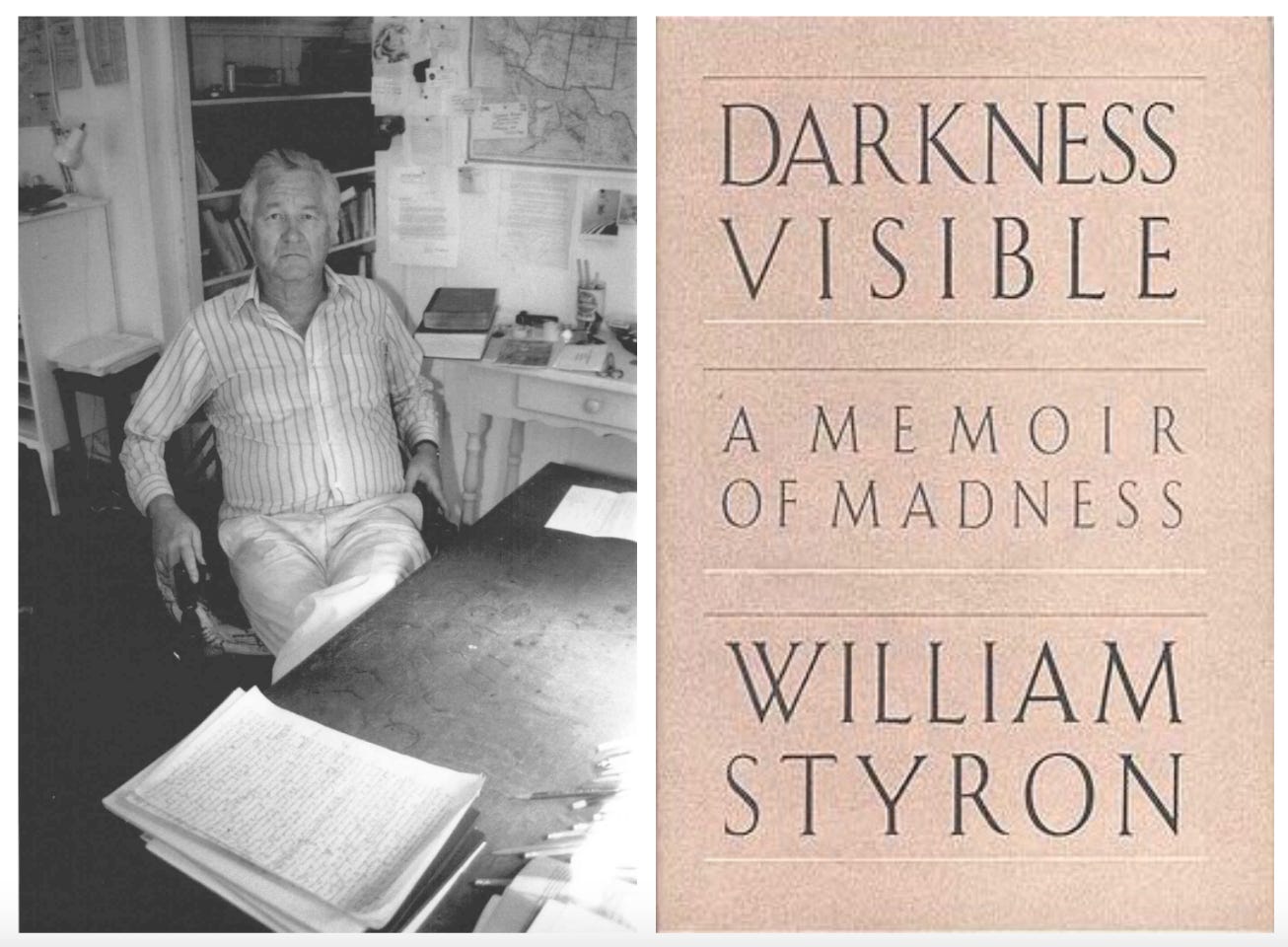Brain Storms: The Best Books on Madness
A disordered chronicle of mental-illness lit
“In the middle of the journey of our life
I found myself in a dark wood,
For I had lost the right path.”
— Dante
From time immemorial, man’s struggle with madness has run through art “like a durable thread of woe.” as William Styron put it in Darkness Visible: A Memoir of Madness. From Sophocles to Shakespeare, Dostoyevsky to Kesey, writers have sought to properly evoke “the drowned mind’s appalling phantasmagoria.” Styron cites Dante’s infernal wood as literature’s most faithful metaphor for madness, but in 2023, mental illness is no longer confined to the realm of metaphor. Today’s best seller lists are rife with first person accounts of depression, bipolar disorder, schizophrenia, and trauma.
Life with bipolar disorder has made me something of a student of mental illness; since my first manic episode seven years ago, I’ve been working my way through much of the canon. The handful of books I discuss below are the ones that I have found most helpful, most enlightening, and most reminiscent of my own struggles with mental illness.
Darkness Visible: A Memoir of Madness, by William Styron
For as long as I can remember, Styron’s masterpiece of madness has been sitting on my Audible bookshelf, gathering digital dust. The one title inevitably situated near the top of every list of “The Best Books About Mental Illness” I came across was Styron’s. But I resisted. This was the author of Sophie’s Choice and The Confessions of Nat Turner, a true literary heavyweight; I feared his book—short though it was—would be similarly heavy. After all, the “Darkness” in Styron’s title promised little in the way of hope or redemption.
Over the past several weeks, however, I’ve been editing a book on sin, and on Monday I reached the chapter on despair. That seemed like the pretext I needed to finally face the darkness, as it were. I can see now what everyone was raving about. (I should note that Darkness Visible is roughly 100 pages long, so finishing it in one day is easy work. But if even that seems excessive, you can read the Vanity Fair essay on which the book was based.)
“Depression is much too complex in its cause, its symptoms and its treatment for unqualified conclusions to be drawn from the experience of a single individual,” writes Styron. While this may be true, the shock of familiarity I felt in Styron’s struggle speaks to certain universal qualities of depression: the hopelessness, lassitude, ennui, paralysis. But the story ends with the darkness lifting, and the lasting impression is one of love and optimism:
Keep reading with a 7-day free trial
Subscribe to The Sword and the Sandwich to keep reading this post and get 7 days of free access to the full post archives.






